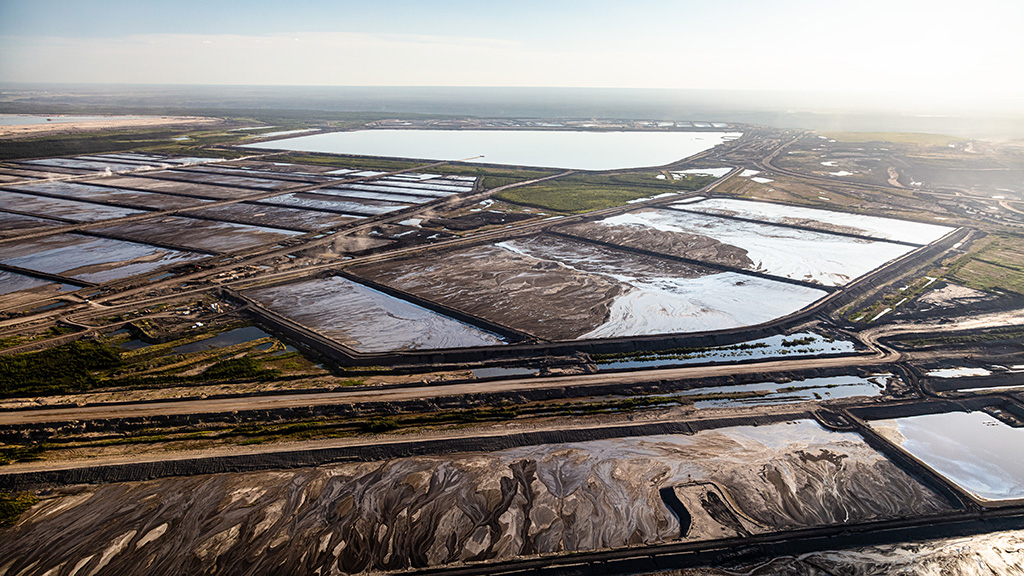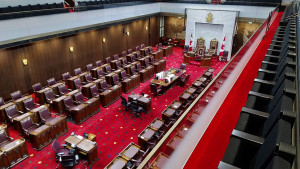OTTAWA — New amendments to the federal Competition Act have been met with a mixed response from industry, government and policy think-tanks.
Changes were made to the Competition Act last month which the Competition Bureau said will reinforce the bureau’s “ability to protect competition and prevent anti-competitive mergers and conduct,” a release said.
Among the amendments to the act, implemented via Bill C-59, which received royal assent on June 20, is a requirement for companies to provide evidence to environmental claims.
Pathways Alliance, a consortium of Canadian oil and gas companies, responded to C-59 by removing all content from its website and social media.
“As part of late changes to the omnibus Bill C-59, imminent amendments to the Competition Act will create significant uncertainty for Canadian companies that want to communicate publicly about the work they are doing to improve their environmental performance, including to address climate change,” the Pathways Alliance site stated.
“With uncertainty on how the new law will be interpreted and applied, any clarity the Competition Bureau can provide through specific guidance may help direct our communications approach in the future.
“For now, we have removed content from our website, social media and other public communications. This is a direct consequence of the new legislation and is not related to our belief in the truth and accuracy of our environmental communications.”
Alberta Premier Danielle Smith excoriated the changes to the bill in a statement.
“Alberta is a global leader in the complex effort to reduce emissions from our energy industry while delivering the resources our nation and the world need to live and thrive. We need a lucid partner in Ottawa that is willing to work with us and not demonize one of Canada’s largest employers and industries,” Smith said.
“Bill C-59…will prevent private entities from sharing truthful and evidence-based information that happens to oppose the extreme and untruthful oil and gas narrative of the federal NDP and Liberals. This is being done to intentionally intimidate boards and shareholders, silence debate, and amplify the voices of those who oppose Canada’s world leading energy industry.”
The Pembina Institute released a statement that said the Pathways Alliance removal of online content makes the case for emission regulation.
“For some time now, our research and analysis has been identifying significant gaps between the emissions reduction promises that the Pathways Alliance first made in 2021, and their actions to deliver those promises. It remains the case that the group has yet to make any final investment decisions on carbon capture projects, or on other technologies, that would meaningfully reduce their emissions in line with their previously stated 2030 and 2050 targets — despite the existence of significant public subsidies to support such investments,” Pembina Institute oil and gas program director MC Bouchard said in a statement.
“The oilsands is still Canada’s highest emitting industry, and those emissions continue to grow. The actions Pathways and its member companies have taken today appears to be a withdrawal of their commitments to reduce emissions and reach net-zero by 2050.”
The removal of online content from the Pathways site is an opportunity to refocus discussion from intentions and promises to a “reasoned conversation about the need for regulations to ensure the industry decarbonizes.” he said.
In a guide to June 2024 amendments of the Competition Act, the Competition Bureau said improvements to the acts deceptive marketing provisions include tackling “unsupported environmental claims, commonly known as greenwashing.”
This includes requiring that claims about the environmental benefits of a product be supported by adequate and proper testing and requiring claims about the environmental benefits of a business or business activity be based on adequate and proper substantiation in accordance with an internationally recognized methodology.
“The bureau is assessing the impact of these requirements and expects to provide guidance, in due course, that will offer transparency and predictability for the business and the legal communities in the enforcement of the law,” the guide said.











Recent Comments